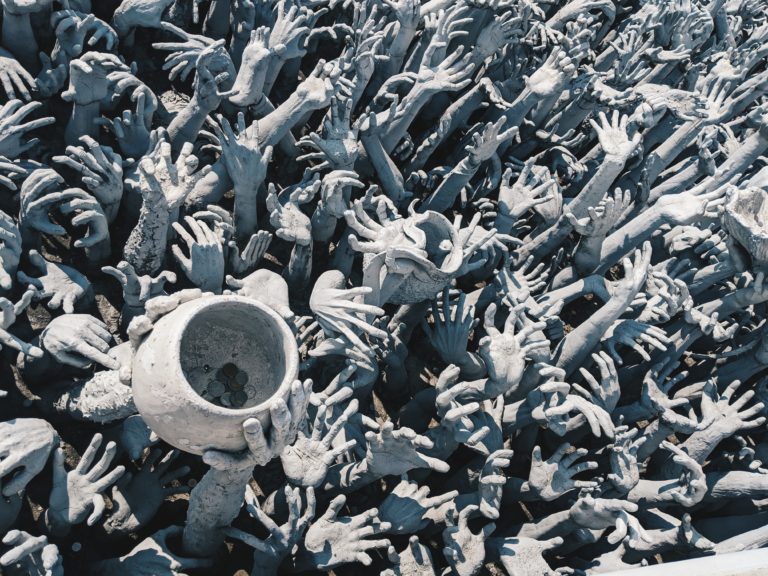
About 200 pensioners are camped outside of the Chengdu municipal government office building to protest imbalances in benefits offered to private and public sector employees. They represent around 50 state-owned hospitals, clinics, and community health care centers and, from the looks of it, they aren’t going anywhere until the imbalances are addressed.
“People from the same generation, who did the same work, receive three times the pension we do,” a group of ladies told me this morning. “How is a sixty-year old supposed to live on 1,000RMB a month these days?”
The majority of the pensioners are women in their sixties; the type of stern yet motherly figure commonly seen in hospitals of China briskly administering prescriptions, taking blood, marching down sterile hallways with sheafs of documents, and placating clumps of worried, irate patients. They are the backbone of the healthcare system in China and they feel they’ve been given a raw deal: “same work, same pay,” they repeat over and over, “we need to be treated fairly.”
Private hospitals like Chengdu’s Angel Hospital pulled away a lot of the best doctors from around the city with attractive salaries, upgraded office environments and, it seems, much better retirement options. But for those who stayed in the public system, with the state-owned and managed hospitals – famous for being crowded, dilapidated relics of Soviet influence – the meagre retirement pay coupled with resentment over their private colleagues’ conditions has now spilled, peacefully, out onto the streets.
As lunchtime approaches, the women sit in small groups peeling bananas and hard-boiled eggs, quietly chatting with each other or hailing an old comrade. They have small stools and pieces of cardboard to sit on and, for all of their angre over unfair pay, they seem a jolly bunch. Cackles ring out from time to time and several of them break away to discuss the situation with the the twenty-odd young police officers hemming them in on all sides.
“We’re going to stay until the government acknowledges us, ” says Ms. Xiong, who was a nurse at Chengdu’s No.9 Hospital. “We’re not going anywhere until this problem gets solved.”






